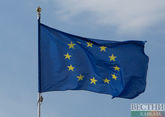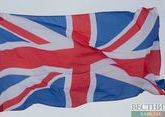Hundreds of thousands of demonstrators gathered in London - by approximate estimations, more than half a million people - demanded a new referendum on Britain's exit from the European Union. According to some observers, the future of Brexit is less clear now.
One of the leading British newspapers The Guardian wrote that the demonstration against Britain's exit from the EU has become one of the largest protests in the UK over the past decade, i.e. since the military campaign in Iraq. In May 2016 a referendum on whether to remain in the EU was held, following the results of which Brexit supporters achieved a minimum advantage. Subsequent sociological studies revealed the following picture: Brexit was mostly supported by older people, i.e. a more conservative part of British society, while the young and engaged in entrepreneurial activities part of the population connects the country's future with integration trends.
However, sociological studies, which have no legal force, is one thing, while Brexit, which is a legal result of the people's will, even without a clearly defined advantage, is another thing. Having received the mandate of national trust to exit from the EU, London has opened negotiations with Brussels, which turned out to be more difficult than expected, so separation conditions are still not defined. Moreover, according to some experts, the negotiations become even more complicated or even deadlocked.
A point of significant contention in Brexit negotiations was the rights of citizens of EU countries living in the UK, and vice versa - the rights of the British, who prefer to live on the mainland. The second problem is the border between Northern Ireland, which is a part of the UK, and the Republic of Ireland, which is the EU member and does not even think about leaving the interstate alliance.
However, the demonstration on October 20 pushed the problem of UK-EU negotiations to the second plan, because the split of British society was brought to the forefront, which worries the establishment more than other things.
The Guardian pushed the boat out in citing politicians and ordinary participants in the event, their statements are curious and cast more light on the situation in the UK than other arguments of venerable political scientists and experts.
The Liberal Democrats leader, Vince Cable, said it was "a tragedy this country is being divided by generation."
Green party MP Caroline Lucas: "Brexit would make our poorest communities even poorer and more powerless. We must re-programme an economy that fails so many, that is based on such inequality."
Conservative MP Anna Soubry: "It is clear we are the many. We will take responsibly and sort out this mess."
Matthew Cooke, 28, who had come down from Scunthorpe with the Modern Union for a Changing World, explained the reporters that "Brexit in its guise is no good for jobs, no good for workers rights and no good for people’s finance."
Peter, 60, from Crawley, had created a large banner that read: "Would an honourable country renege on a peace treaty? No hard border in Ireland." Peter said: "I remember the Troubles from the 70s. People forget too soon the benefits of the Good Friday agreement."
Jason Gillot, 43, said he originally voted to leave the EU, but "changed his mind five days after the referendum," so he has been marching with a sign that says "When the facts change, I change my mind!"
The comedian Dom Joly posted a photograph of London on Twitter, which depicts hundreds of thousands of people on the streets, and sarcastically contrasted the rally with the march by the far-right Football Lads Democratic Alliance: "Massive gang of non-racists maraud the streets of London chanting non-racist slogans and not harassing foreigners."
However, it seems that the half a million rally did not impress the British authorities. In any case, British Prime Minister Theresa May declared that no second referendum will be held, while she is in office. The people, who know May as a complex politician who is not inclined to change opinions and decisions, believe that it wasn't just words and this time she will follow her way, i.e. work towards leaving the EU. And this means an increase in the domestic political degree in Britain, a polarization of society, a toughening of political opposition. This may be sufficient for her opponents (not just the general opposition, but also opponents within the ruling Conservative Party) to start seeking new parliamentary elections and, as a consequence, the new Prime Minister of the United Kingdom.










